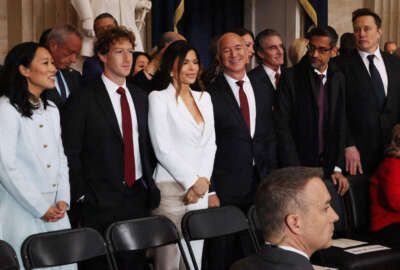Why artificial intelligence will never replace your job
Artificial Intelligence people keep reassuring everyone else their jobs are safe. What is it about AI that makes people think it could possibly replace them?
Have you noticed how artificial intelligence purveyors are trying to shove it down our throats?
Google, for example, urges people to try its Gemini. They’ve built the program into the company’s mail and word processing applications, but you have to opt in. I finally dismissed the notice after it popped up every time I open one of my accounts. Microsoft is no better. It pushes its Co-pilot function everywhere you look. What I’d like from Microsoft: Update the scroll function to work on scheduling appointments or meetings. The functionality there feels like it dates to Windows 286.
Technical people at all of the IT conferences dutifully reassure audiences that artificial intelligence won’t replace people. They say, rather, it will “augment” people by doing routine or low-value tasks. Or it will help prioritize or stage work according to some factor. They keep saying this because enough people must worry about replacement by software.
And let’s acknowledge the fact that AI has already infiltrated daily life. The best commercial digital services and most software applications contain AI augmentation.
I believe that. AI can certainly augment a million tasks and take away cut-and-paste drudgery. AI, though, consists of software. The only people it will likely replace are programmers, those who code. Robots, on the other hand, have replaced people on assembly lines and in certain dangerous exploratory situations. They’ll eventually replace the proverbial hamburger flippers. AI will improve physical, mechanical robots, but it won’t directly replace people.
You don’t have to look far to see the kinds of work AI can maybe help but never replace. I talked the other day with Chris Mark. He works from Pittsburgh for the Mine Safety and Health Administration, part of Labor. Mark earned a Service to America Medal nomination. To greatly simplify it, he discovered how lateral, or tectonic, land movement contributes to mine roof collapses. Roof collapses, a vertical phenomenon, constitute the principal danger to miners’ lives. Because of Mark’s work, mine layout and design techniques have led to more stable mines and steadily fewer annual deaths. He developed software to help mine builders make better calculations.
What a story. At 19 years old, Mark didn’t feel college seemed all that enticing. Born in Greenwich Village, growing up in Manhattan, at 20 he became a coal miner in West Virginia. That’s tough work. Eventually he earned a doctorate in mining engineering before embarking on his long federal career as a mine researcher and, later, regulator.
We were chatting about Pittsburgh and my visual memories from childhood of flame-belching steel mills and glowing slag heaps. A sudden thought popped into my head. How could AI replace someone like Chris Mark?
So many federal jobs require experience and intuition. Janet Woodcock retired as principal deputy commissioner at the Food and Drug Administration. She’s legendary for reforming drug approval processes and for hectoring Congress to let FDA collect user fees from the generic drug makers. She also pushed for automation and electronic forms to help evaluators deal with what had been trailers full of paper submissions.
No doubt future FDA improvements will come from AI to speed up document discovery, risk analysis and clinical test interpretation. People will think up the use cases and make the decisions.
Nearly Useless Factoid
The first coal mine in America was established in 1701 in Midlothian, Virginia.
Source: Geogrit.com
Copyright © 2025 Federal News Network. All rights reserved. This website is not intended for users located within the European Economic Area.
Tom Temin is host of the Federal Drive and has been providing insight on federal technology and management issues for more than 30 years.
Follow @tteminWFED







